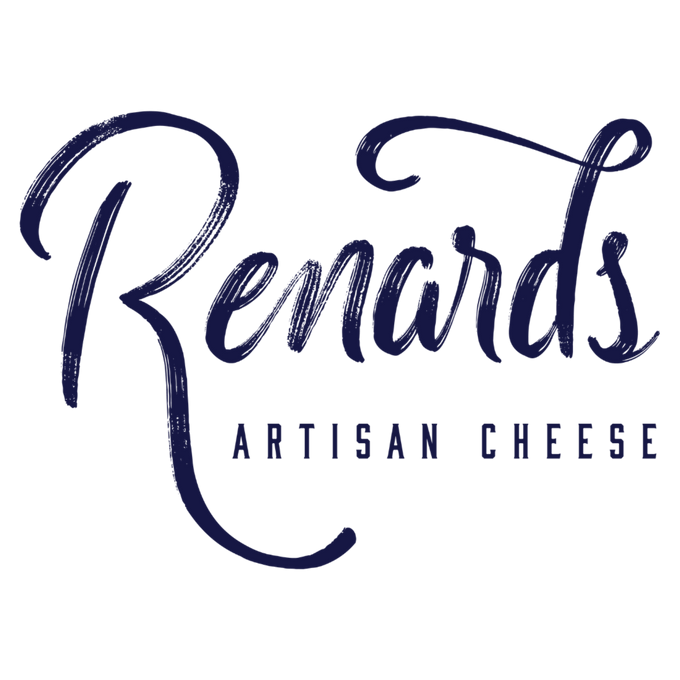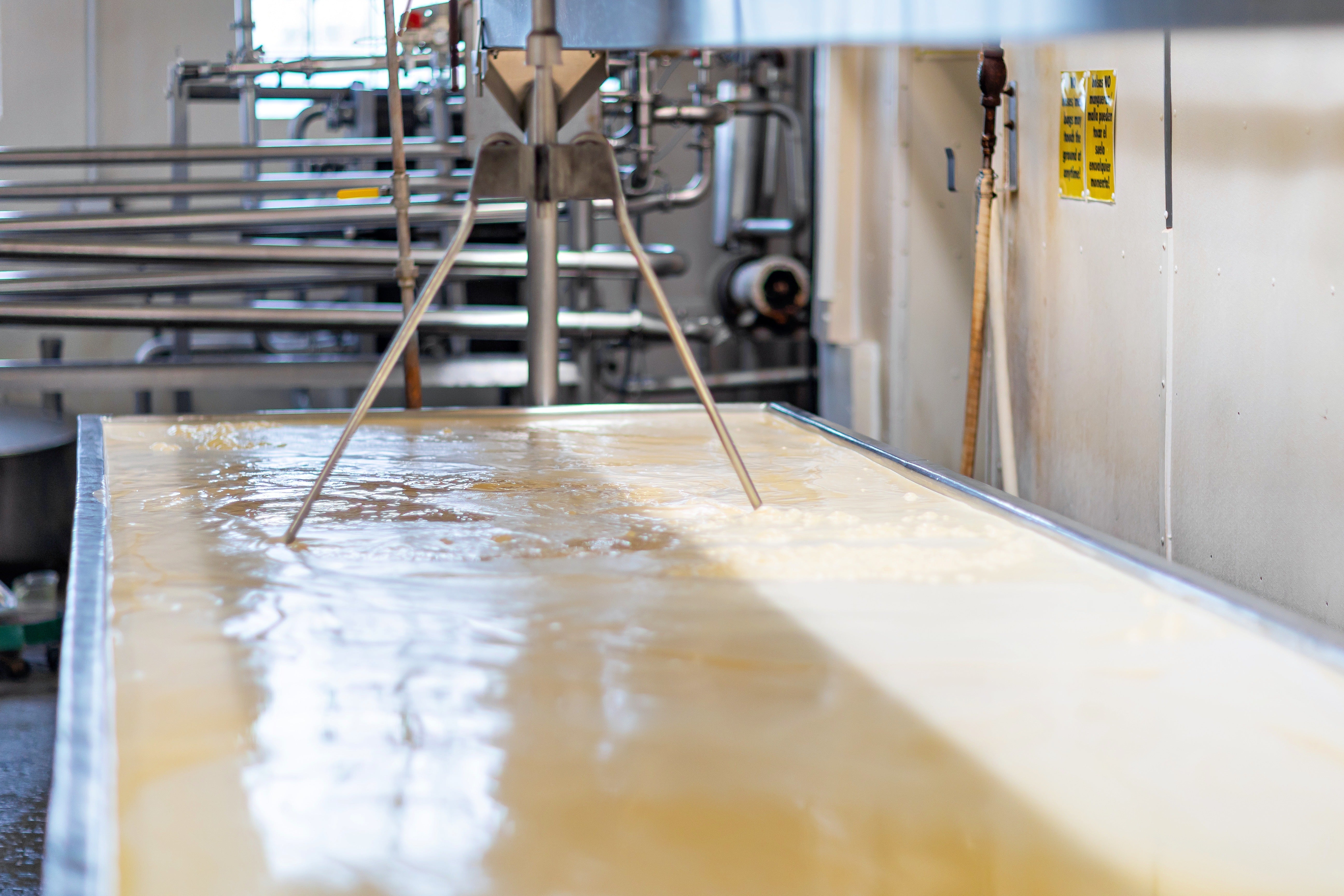Did you know that our cheesemaking is completely sustainable, without any waste? At Renard’s Cheese, reducing our environmental impact and preserving the peninsula that we call home is of the utmost important to us and our cheesemaking practices.
Door County is unlike any other place in the world—completely surrounded by Lake Michigan and the Bay of Green Bay, these fresh waters enrich the nutrients in the soil that lead to lush pastures for local dairy cows to graze on. This helps the cows produce high-quality milk, which is a key ingredient in our award-winning cheeses and separates us from the rest of Wisconsin cheesemakers.
With great respect and understanding for the land and the animals that make our cheese exceptional, we take the greatest care to produce minimal waste while cheesemaking.
Understanding cheesemaking’s natural byproducts
Traditional cheesemaking creates two primary byproducts that have historically posed environmental challenges. However, understanding these materials reveals opportunities rather than obstacles. When approached with an unshakeable commitment to sustainability, these byproducts become valuable resources that complete the circle of responsible production.
Cheesemaking begins when milk separates between curds and whey. Whey represents the largest byproduct of cheesemaking, accounting for about 90% of the original milk volume. This nutrient-rich liquid contains valuable components beyond water, such as protein, lactose, minerals, and fats.
Historically, whey was viewed as substantial waste that simply needed to be dumped, which left a vast negative impact on the environment. Today, whey is used in a variety of products that repurposes it for consumption, becoming one of cheesemaking’s most sustainable byproducts. The protein content alone makes it useful for human nutrition, appearing in everything from protein powders to nutritional supplements. The lactose is often transformed into renewable biofuels for vehicles or biodegradable plastics. Even the dissolved sugars are repurposed in baked goods and candy.
At Renard’s Cheese, every drop of whey finds new purpose. We partner with whey processing facilities that convert the byproduct into protein-rich snacks and drinks for human consumption. Additionally, the whey becomes high-grade animal feed, creating a complete cycle where the animals that help us craft our cheeses benefit from the process itself.
This approach reflects our commitment to Door County’s farming community. By ensuring our whey becomes nutritious animal feed, we support the very dairy farms and cows that supply our milk, strengthening the local agriculture that makes our cheese possible.
Managing wastewater through natural processes
Cheesemaking also generates wastewater containing dissolved sugars, proteins, fats, and whey remnants. Left untreated, this water could impact local ecosystems. However, through careful chemical and biological treatment processes, we transform this potential environmental concern into a benefit.
Our wastewater treatment employs natural biological processes and chemical treatments to break down organic matter, removing harmful elements while preserving beneficial nutrients. The result is clean water that can be returned to the environment, further enriching the soil.
Rather than drawing solely from natural water sources, we’re able to return water that actively supports soil health and pasture growth, benefiting Door County’s farmland. This is a cycle that honors and respects the land that nurtures our community and our animals.
Future preservation efforts
Sustainability at Renard’s Cheese extends beyond waste management to encompass our entire relationship with Door County’s unique ecosystem. We maintain close partnerships with 17 small family farms, ensuring traceability from pasture to finished cheese. These relationships allow us to support farming practices that enhance the land and our community.
Our commitment to sustainability influences every aspect of our operation. With our future factory expansion, we’re investing in state-of-the-art equipment that maximizes efficiency while minimizing environmental impact. The new facilities we’re developing will incorporate even more advanced wastewater treatment systems, setting new standards for environmental responsibility in cheesemaking. These investments reflect our belief that exceptional cheese and environmental stewardship go hand in hand.
Community impact and transparency
True sustainability encompasses economic and social responsibility alongside environmental stewardship. By maintaining our zero-waste commitment, we’re preserving Door County for future generations while supporting the local economy that makes our craft possible.
The ripple effects extend throughout our community. Local farmers benefit from our whey processing partnerships, soil health improves through our wastewater treatment, and the peninsula’s natural beauty remains protected for residents and visitors alike.
Preserving paradise
Door County’s extraordinary landscape makes our award-winning cheese possible, but it also creates a responsibility. Every decision we make considers the long-term health of this irreplaceable environment. Our zero-waste approach ensures that the peninsula’s pristine waters, rich forestry, and thriving farms will continue supporting both our community and our cheesemaking for generations to come.
The path to sustainability requires constant attention and unwavering commitment. We continue to explore new technologies and partnerships that further reduce our environmental impact while maintaining the artisanal quality our customers expect. Our journey toward complete sustainability represents more than environmental responsibility; it’s a promise to Door County and everyone who calls this place home. By showing that exceptional cheesemaking and environmental stewardship can coexist, we’re helping preserve this special place while sharing it with cheese lovers everywhere.
Come visit us in Door County and taste the difference that sustainable, artisanal cheesemaking creates. Experience the bounty of the land and how respect for tradition, commitment to community, and love for Door County combine to create cheese worthy of sharing with those you love.


